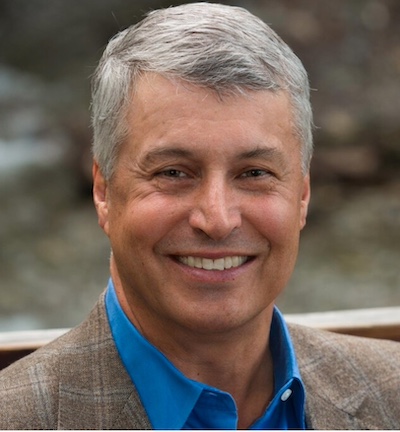By MICHAEL TAVOLIERO
Over the past decade, Alaska has become a sobering case study in the systematic digression from freedom to entitlement, where government agencies, originally built to serve and protect, have transformed into sprawling bureaucracies of dependency, eroding both the independence and health of its people.
In a bitter irony, the very programs created with the intention of improving lives, Medicaid expansion, SNAP, subsidized housing, behavioral health grants, have instead produced managed decline, where poverty is institutionalized and personal agency is replaced by procedural compliance.
The irony lies not just in the results, but in the intentions. These programs were meant to expand access, reduce suffering, and create equity. Instead, they’ve created chronic dependency, where people are sustained in poor health rather than healed, where public nutrition programs coexist with soaring obesity and diabetes, and where addiction services multiply even as communities fall deeper into despair.
Alaska’s Medicaid program, expanded in 2015 with promises of increased care, now consumes billions while delivering long wait times, limited provider access, and little measurable improvement in public health.
Wellness is no longer the goal. Maintenance within a broken system is!
This decay has not been limited to health. SNAP benefits and housing subsidies, instead of providing stability, have fueled multi-generational reliance on the state, displacing family responsibility and weakening community resilience. In this environment, hope is rationed, and initiative is penalized. The government has become not a partner in progress, but the central authority managing a web of entitlements. This web quietly discourages self-reliance.
Meanwhile, to fund this expansive machinery, Alaska’s government has increasingly diverted money from the Permanent Fund dividend (PFD). Once a symbol of shared wealth and economic independence, the PFD is about to become a memory. In doing so, the state strips individuals of direct control over their portion of Alaska’s resource wealth and instead reallocates it through opaque bureaucratic pipelines, where the individual is always a passive recipient, never an empowered actor.
The cruelest irony of all is this: in attempting to protect the vulnerable, we have made more people vulnerable. In trying to reduce inequality, we have deepened the divide between state-managed existence and authentic opportunity. And in promising compassion, we have delivered control.
In this same vein, Alaska has witnessed the quiet emergence of a new class divide, not between rich and poor in the traditional sense, but between those who work for the government and those who live off it. This is the unintended but entirely predictable result of a system where government spending, not production, innovation, or private enterprise, has become the dominant economic engine in much of the state.
Classic Marxism.
On one side are the bureaucratic beneficiaries: agency employees, administrators, program managers, and consultants whose salaries, pensions, and job security are shielded from market forces and funded by taxes, royalties, and increasingly, by diverted Permanent Fund revenues. These individuals operate in a parallel economy where performance is often decoupled from results, and institutional growth, not public service, is rewarded. Their livelihoods depend on maintaining the size and scope of government itself.
On the other side are the dependent class: not by nature, but by circumstance, trapped in webs of Medicaid, SNAP, housing subsidies, and a host of welfare systems that offer temporary relief but long-term stagnation. These Alaskans are not empowered to build, compete, or rise; they are managed, surveyed, and processed. Any attempt to break free from these programs is met with bureaucratic resistance, benefit cliffs, or administrative delays that punish ambition and reward compliance.
Caught between these two classes is the shrinking private sector, where entrepreneurs, tradesmen, small business owners, and working families shoulder the costs of both systems while receiving few of the privileges. They do not draw checks from the state, nor are they supported by it, but they are constantly told they must pay more for the sake of “adequacy” and “equity” in a structure that seems neither adequate nor equitable.
This is not a healthy society. It is a soft caste system built not on merit, but on proximity to government power. It is a reversal of Alaska’s founding values, where rugged self-reliance and equal footing under the law were once the norm. And it is unsustainable.
Our state motto has become “North to entitlement.”
To restore balance, Alaska must rebuild a culture of earned independence, where dignity comes from contribution, not entitlement; where public servants serve rather than rule; and where assistance is a stepping stone, not a way of life. The state’s future depends not just on reducing bureaucracy, but on reviving the principle that government exists to enable freedom, not divide citizens into the managed and the privileged.
Change begins with awareness of the system’s drift, consciousness of its consequences, and conscience to act against it. We must awaken to how far we’ve strayed from Alaska’s original intent, freedom, opportunity, and accountability, and recognize that no policy, no program, and no bureaucracy can replace the responsibility and dignity of a free people. Only when citizens reclaim their role, not as passive recipients, but as active stewards, can we restore a system rooted in liberty, local control, and self-determination.
The solution is not to withdraw compassion, but to reclaim freedom. That begins by dismantling this entitlement apparatus, restoring local control, re-empowering families, and returning public resources to the people.
Alaska cannot recover its promise by continuing down a path paved with good intentions and buried under bureaucratic outcomes. It must rediscover the original values that built it: responsibility, liberty, and trust in the individual, not the institution.
